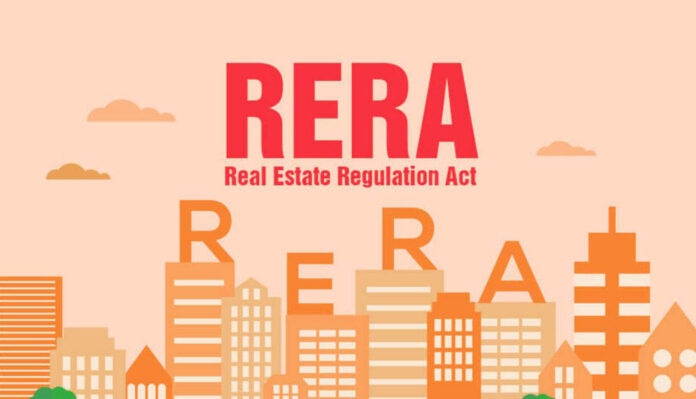The Real Estate (Regulation & Development) Act, 2016 (RERA) was introduced in 2016 by the act passed by the Indian Parliament. After Rajya Sabha passed the bill on March 10, 2016, approval to the act came from Lok Sabha on March 15, 2016. The act came into existence on May 1, 2016 (with 69 of 92 sections notified). The prime motive of introducing RERA in the Indian real estate market was to bring transparency and accountability with proper rules and regulations. The Act mandates disclosures by promoters to customers, including details of the promoter, plan layout, project, approvals, agreements, and the details of real estate agents, contractors, structural engineers, and others. The RERA, on the other hand, seeks to protect the interest of buyers along with boosting investment in the real estate market.
What are the Objectives of RERA?
The RERA serves many purposes for buyers and sellers as a whole. Below given are some of the important objectives of RERA:
- To establish the Real Estate Authority for regulation and promotion of the Real Estate Sector
- To maintain transparency and reduce fraudulent activities
- To protect the interest of customers in the real estate sector and establish an adjudicating mechanism for speedy dispute redressal
- To help increase the reliability of the sector and boost the confidence among investors
- To provide proper information about the builder
- To provide recommendations to the appropriate Government on matters relating to the development & promotion of the real estate sector
Need of Origin of RERA
In India, the real estate market has observed drastic growth in the last 10-15 years. Being the multi-billion dollar industry, the real estate market has emerged as an important sector that has improved the Indian economy. As earlier said, there are specific challenges in the real estate industry that gave rise to significant problems in the market. With such change, there comes a lot of unfair and fraudulent activities. As you all have heard of some of the most famous real estate scams in India, such as Karnataka Wakf Board Land Scam, Emaar Properties Scam, Adarsh Housing Society Scam, etc. These scams have affected the sentiments of buyers who are ready to invest hard-earned money, but the results are not satisfying. To protect customers’ interests and prevent them from any fraudulent activities conducted by the developer, the Indian government thought of changing the real estate market. To end all such things and promote buyers’ interest, the Indian government introduced the Real Estate (Regulation & Development) Act, 2016.
Impact of RERA
On Buyers
Every buyer is a master in itself. But as per RERA Act, it is mandated for every builder to provide complete access to all the project details. Before launching any project of 500 sq. mt. or more than eight apartments, the builder should provide all the details to RERA and the compulsory registration of the project under RERA. It is advised to all the buyers to go through the project from the official website of RERA and look after the details like Project Name, Type of the Project (Residential or Commercial), floor plans, and many others.
Another added advantage to the buyer is that the builder is made a mandate to mention the carpet area of each room in the house, including the living room, kitchen, bathroom, etc.
As per RERA, the builder should show transparency in money. Buyers make investments and advance payments to the builder, in which the builder should store all the payments in separate bank accounts. Under this circumstance, the builder should store 70% of the project’s investments, and transparency should be maintained of how the money is being spent.
Also, now buyers are provided at ease with time-to-time updates on the project work. Builders are given the strict orders of mentioning each detail in case of any updation made in the project, once every 3 or 4 months.
On Builders
The introduction of RERA into the real estate market has also impacted the builders from start to delivery of the project. This has also reduced the competition among various developers. The RERA has compulsorily made the builders give complete details of the company, project registering for, and others. Builders cannot advertise, sell or market any project without first registering the project with RERA. And RERA will only approve the registration after cross-checking all the documents submitted by the builder. This step will stop developers from getting involved in fraudulent activities or scams, and the best will be presented to the buyer at large.
With the regulation of RERA, the builders now have the opportunity to showcase their excellent work. They can update their work module on the RERA website only after getting registered with RERA. This will help them gain confidence and trust among buyers and ultimately bring a high market share of reputed builders. Also, this will offer a safe environment to the investors for investing more and more in real estate.
On Real Estate Agents or Brokers
The RERA has given equal importance and has impacted real estate agents and brokers on the same level as builders can only market their project after getting it registered with RERA. The RERA, on the other hand, will cross-check all the documents submitted by the builder to offer the best and transparent project to the customers. Thus, investors can choose genuine agents or brokers based on registered projects with RERA.
On Property Prices
The implementation of RERA has also impacted property prices in its way. As property prices are determined by the demand and supply in the market, it affects the real estate market. As per the experts, real estate prices would not rise immediately after the RERA implementation because many unsold inventories in the market have not been sold in the last five years.
State Real Estate Regulation Authorities (SRERA)
Every state in India has different real estate regulation authorities who consistently provide a transparent process to buyers to invest in properties. Below given are some of the state real state regulatory authorities in detail form:
Year of Enforcement: 2017
Website: https://rera.kerala.gov.in/
Tamil Nadu RERA
Year of Enforcement: 2017
Website: https://www.rera.tn.gov.in/
Karnataka RERA
Year of Enforcement: 2017
Website: https://rera.karnataka.gov.in/
Telangana RERA
Year of Enforcement: 2017
Website: http://rera.telangana.gov.in
Maharashtra RERA
Year of Enforcement: 2017
Website: https://maharera.mahaonline.gov.in/
Chhattisgarh RERA
Year of Enforcement: 2017
Website: https://rera.cgstate.gov.in/
Odisha RERA
Year of Enforcement: 2017
Website: https://rera.odisha.gov.in/
Gujarat RERA
Year of Enforcement: 2017
Website: https://gujrera.gujarat.gov.in/
Madhya Pradesh RERA
Year of Enforcement: 2017
Website: https://rera.mp.gov.in/
Jharkhand RERA
Year of Enforcement: 2017
Website: http://jharera.jharkhand.gov.in/
West Bengal RERA
Year of Enforcement: 2017
Website: https://hira.wb.gov.in/
Rajasthan RERA
Year of Enforcement: 2017
Website: https://rera.rajasthan.gov.in/
Uttar Pradesh RERA
Year of Enforcement: 2016
Website: https://www.up-rera.in
Bihar RERA
Year of Enforcement: 2017
Website: https://rera.bihar.gov.in/
Haryana RERA
Year of Enforcement: 2017
Website: https://haryanarera.gov.in/
Punjab RERA
Year of Enforcement: 2017
Website: https://www.rera.punjab.gov.in/
Himachal Pradesh RERA
Year of Enforcement: 2017
Website: http://www.hprera.in/
RERA is now actively working in all the states and is implementing its strategies and rules all across the states. This, in turn, has offered a significant advantage in the real estate industry. Many thousands of real estate projects are being registered on the RERA website offering relief to investors. Also, many of the pending requests and complaints are resolved immediately on the implementation of RERA. Currently, 28 states and union territories have notified RERA and are working accordingly in the country.



